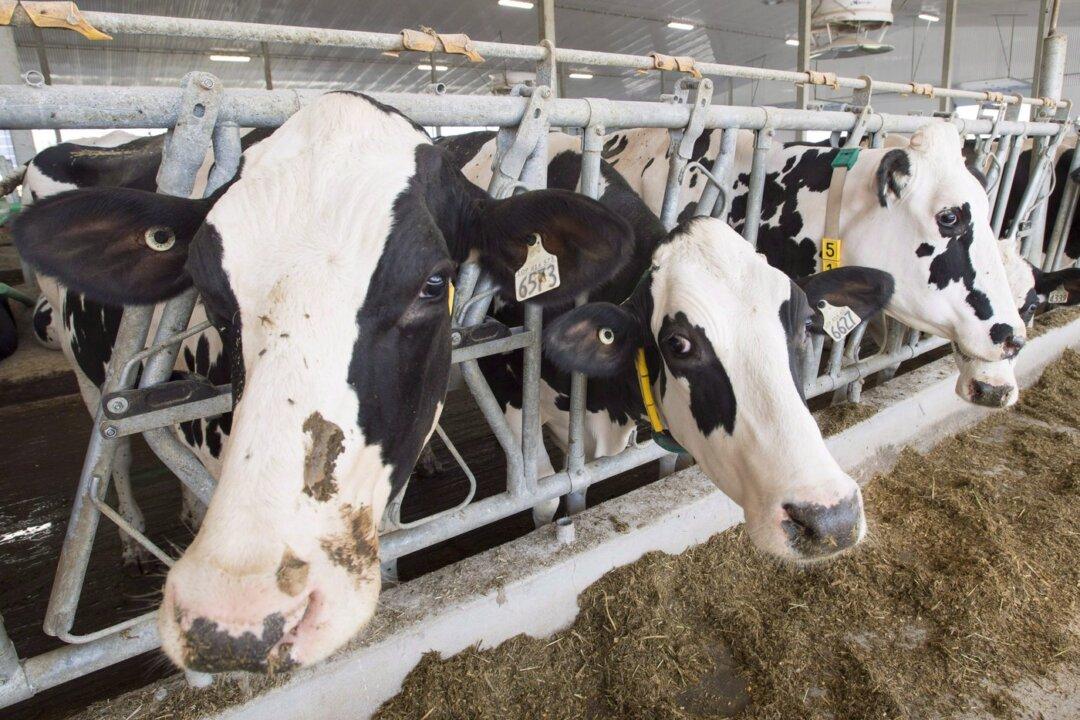More than six billion litres of milk have been discarded on Canadian dairy farms since 2012, according to a newly released study.
Canada’s dairy supply management system “unnecessarily disposes of overproduction” and has led to an estimate of between 6.8 billion and 10 billion litres of milk being dumped out over the decade from 2012 to 2021, says the study published in the journal Ecological Economics. Valued at as much as $14.9 billion, 6.8 billion litres of dumped milk accounts for roughly 7 percent of milk produced on dairy farms during that time period.





